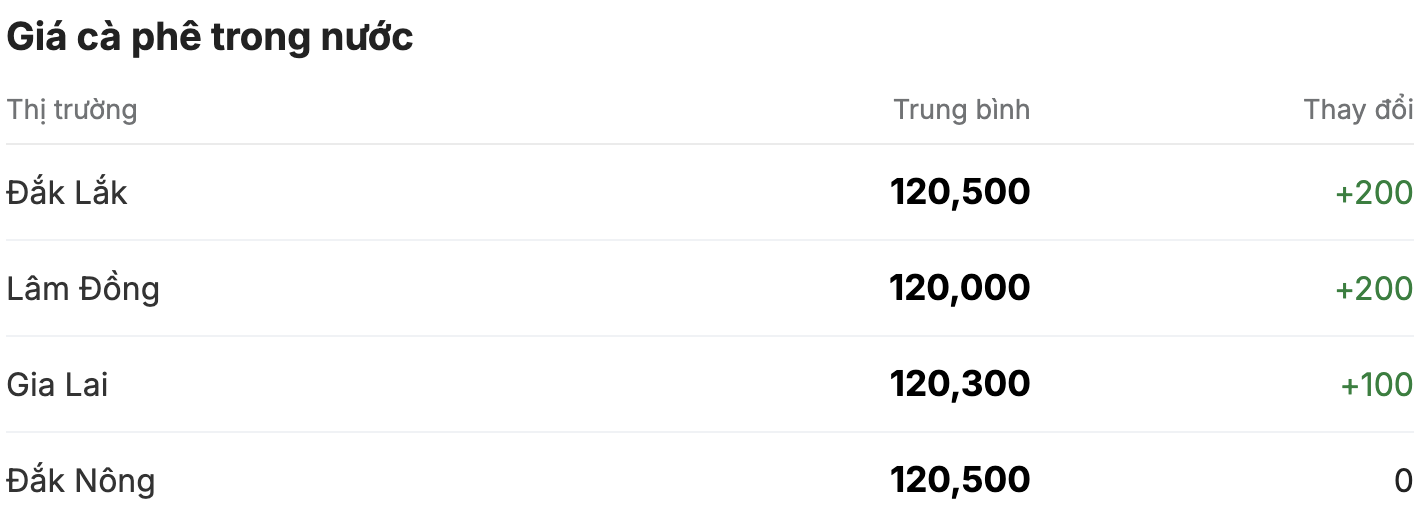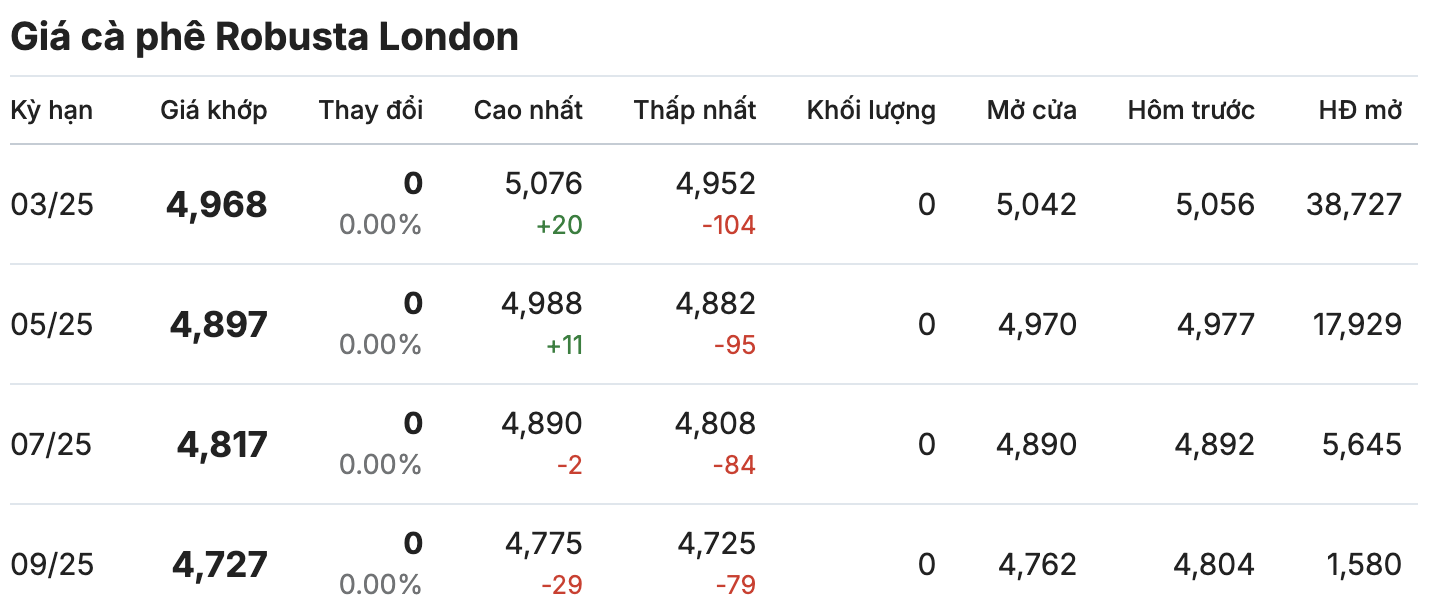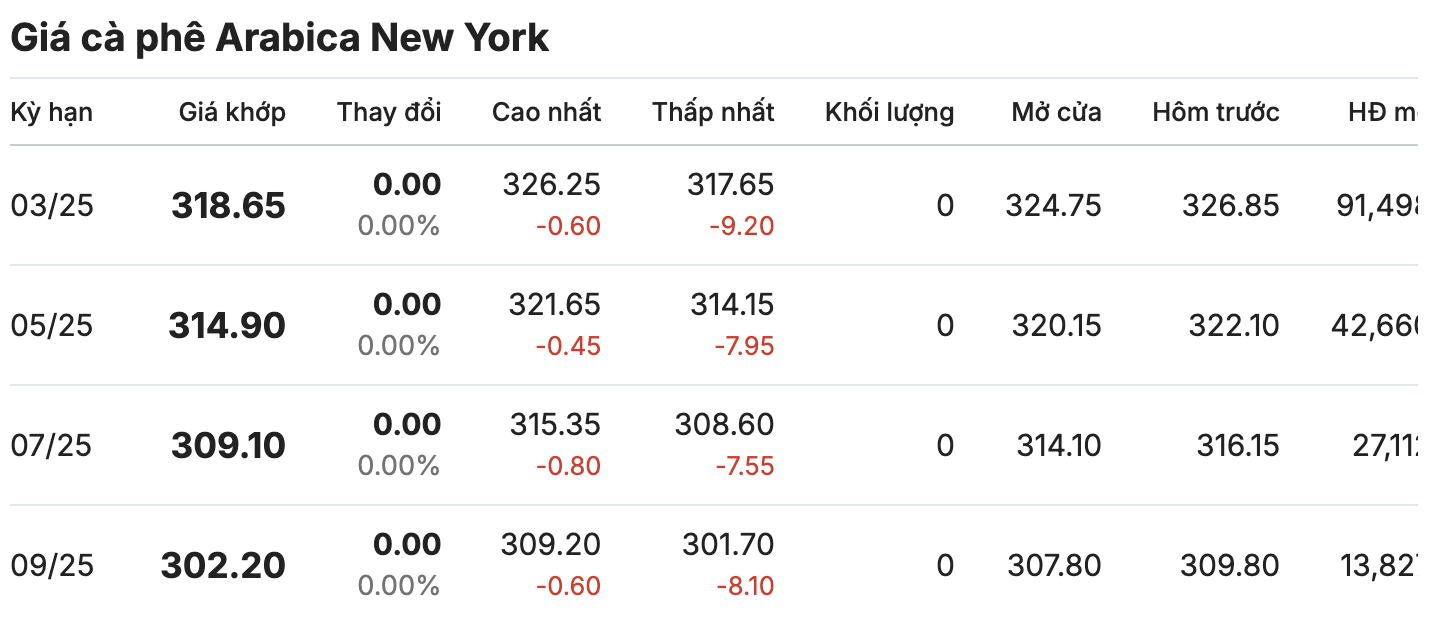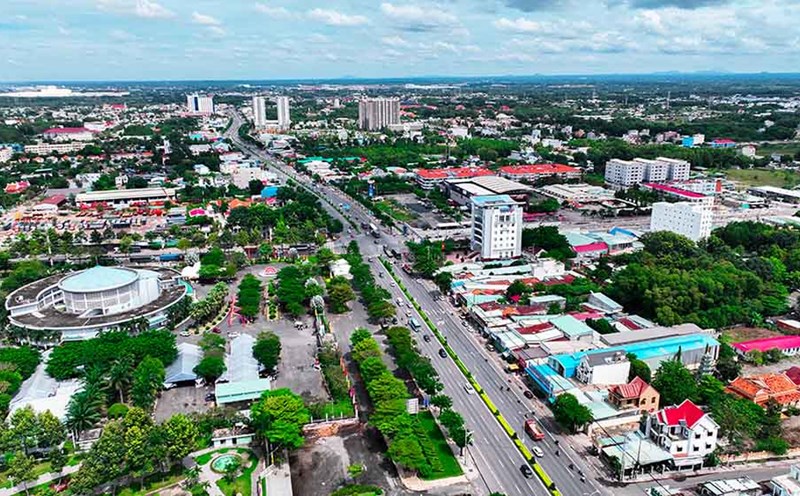As of 11:30 a.m. today (January 6), the domestic coffee market suddenly rebounded, increasing by an average of VND200/kg per session, with the current purchase price fluctuating between VND120,000 - VND120,500/kg. The average coffee purchase price in the Central Highlands provinces today is VND120,400/kg.
Lam Dong is still the province with the lowest coffee purchasing price in the Central Highlands, with a difference of about 400 VND/kg compared to the average price. Compared to the shocking drop last weekend, coffee prices in this region have increased by 200 VND/kg, reaching the market price of 120,000 VND/kg.
Purchasing at a price 300 VND/kg higher, coffee prices in Gia Lai province today increased slightly by 100 VND/kg, to 120,300 VND/kg.
Notably, Dak Lak and Dak Nong both ranked first among the provinces and cities with the highest coffee purchasing prices in the country. Dak Lak province increased slightly by 200 VND/kg, while Dak Nong did not record any fluctuations compared to the previous trading session, simultaneously listed at 120,500 VND/kg.

On the London and New York exchanges, the coffee market moved in the same direction across all terms. On the London Robusta Coffee Exchange, coffee prices remained "unmoved", moving away from the $5,000/ton mark. Contracts for delivery in March 2025 and May 2025 remained unchanged, listed at $4,968/ton and $4,897/ton, respectively.

Similarly, the New York Arabica coffee market remained unchanged across all terms. The March 2025 and May 2025 delivery terms were anchored at 318.65 cents/lb and 314.90 cents/lb, respectively.

The stability of coffee commodities in the short term shows that the market is in an adjustment phase and producers are still monitoring to make appropriate decisions.
At current prices, coffee is at a high level, so speculating becomes risky. Although the upward trend of coffee prices has been predicted, not many speculators dare to buy and store goods.
On the other hand, farmers are the ones who directly produce coffee, so garden owners do not face financial pressure like agents. Therefore, farmers can confidently stock and sell according to their own financial needs.











